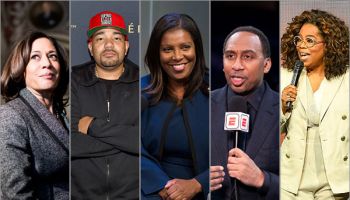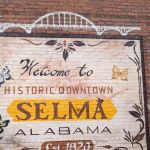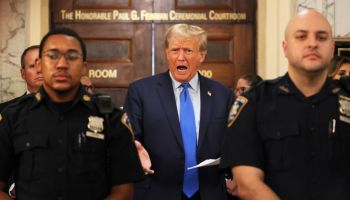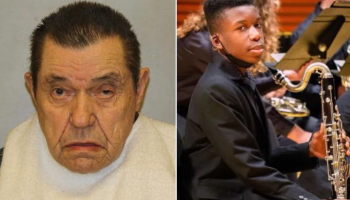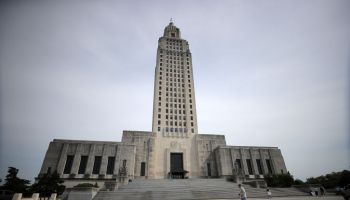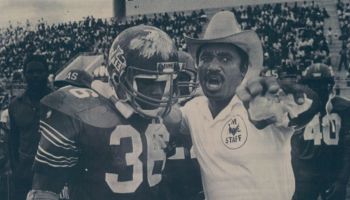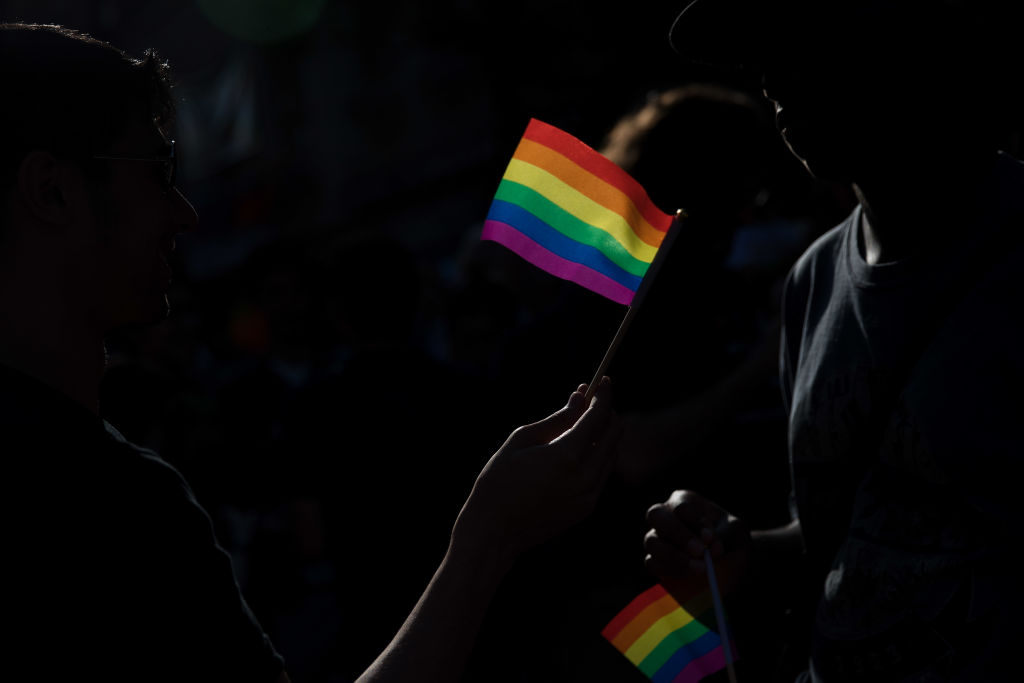
Source: Drew Angerer / Getty
History was made last week when Hampton University standout student-athlete Byron Perkins became the first openly gay Division 1 football player at a historically Black college or university (HBCU).
While the numerous headlines surrounding Perkins’ decision to come out signal progress, his decision to make his sexual orientation public is far from a picture-perfect moment, according to one prominent member of the LGBTQ community who attended an HBCU.
George M. Johnson, New York Times bestselling author of “All Boys Aren’t Blue” and an alum of both Virginia Union University and Bowie State University, questioned why it took so long for an HBCU football player to feel comfortable sharing his journey with the rest of the Black community and society at large.
“When we talk about the first person to ever do something, it always has to come with the caveat of why is it taking so long for this person to be the first,” Johnson told NewsOne this week in an exclusive conversation. “So as significant of a moment that it is, as important of a moment as it is, we also have to understand that the fact of the matter is that this is just now happening in 2022 still speaks to a much larger problem.”
Perkins expressed a similar sentiment during an interview with Outsports in which he officially came out as gay.
“Especially at an HBCU, young Black gay men need an outlet,” Perkins said. “They need a support system. There hasn’t been an out gay football athlete at an HBCU. I want to end the stigma of what people think. I want people to know they can be themselves.”
Perkins added: “It’s about that kid who’s going to see this and think he can be himself too.”
Members of the LGBTQ community have faced significant barriers and discrimination in this country. For the Black LGBTQ community, in particular, those barriers and discrimination are coupled with racism and the stigma of homosexuality in certain Black communities that can make its journey even harder.
Data shows that a significant portion of African Americans harbor the belief that homosexuality is “always wrong,” according to the National Institutes of Health. But that attitude is hardly restricted to just Black folks.
“Homophobia exists in all communities, so it’s not just a Black community problem, but it is one of the problems within Black communities,” explained Johnson, who said he hoped Perkins can embolden others to follow in his footsteps.
However, Johnson suggested that if history is any indication, progress along that front may not be as swift as some might like.
“We can only hope that in [Byron Perkins] being the first to do so, that it will break space and that it will allow others to be able to do so,” Johnson added. “But we have also seen where history … has seen many Black people be the first and we are still waiting on the second. So, as historic as it is, it is also signaling to us as Black communities that we still have a lot of work to do specifically around acceptance.”
HBCUs specifically have been epicenters of Black advancement and Black excellence where students can feel comfortable being their authentic selves. However, for Black LGBTQ students like Perkins, there is an added level of consciousness that they must have. Specifically for Perkins, that consciousness will be elevated even higher now that he has been pushed to the forefront of the gay community at HBCUs.
Johnson, who has faced adversity as a public figure in the gay community, has had his book of personal essays about his experience as a gay person banned in nearly 30 school districts. He said he understands the weight and the importance of the position Perkins finds himself in.
“There are moments where you know you’re grateful that you can amplify an important message that you really want to get out into the world. But the other side of that is you become a target,” Johnson stated.
“You become a target for hatred. You become a target for perfection in many ways where, you know, because there’s such a magnifying glass and spotlight on you, you feel like you can’t make mistakes. You feel like you can’t be human in many ways and you lose a sense of humanity because when you go out in public. If people recognize you, they look at you differently. They treat you differently. And I think that’s the other side of it.”
Johnson said Generation Z is identifying between 15% and 20% LGBTQ already. He predicted that players like Perkins will probably be far from anomalies going into the future.
Society needs to reach a point where gender identities and sexuality don’t play a role in how we treat each other, Johnson added, and said he understands how far society still has to go to be able to create a sustainable environment of acceptance.
“Athletes should feel comfortable identifying that they are gay and not be criticized for it or demonized for it,” said Johnson before musing: “How do we make sure there’s a second and a third and a 10th and a 20th [openly gay HBCU football player] and that we finally get to a number where we don’t count anymore?”
SEE ALSO:
HBCUs Are Gaining More Students While Overall College Enrollment Decreases, Research Shows
